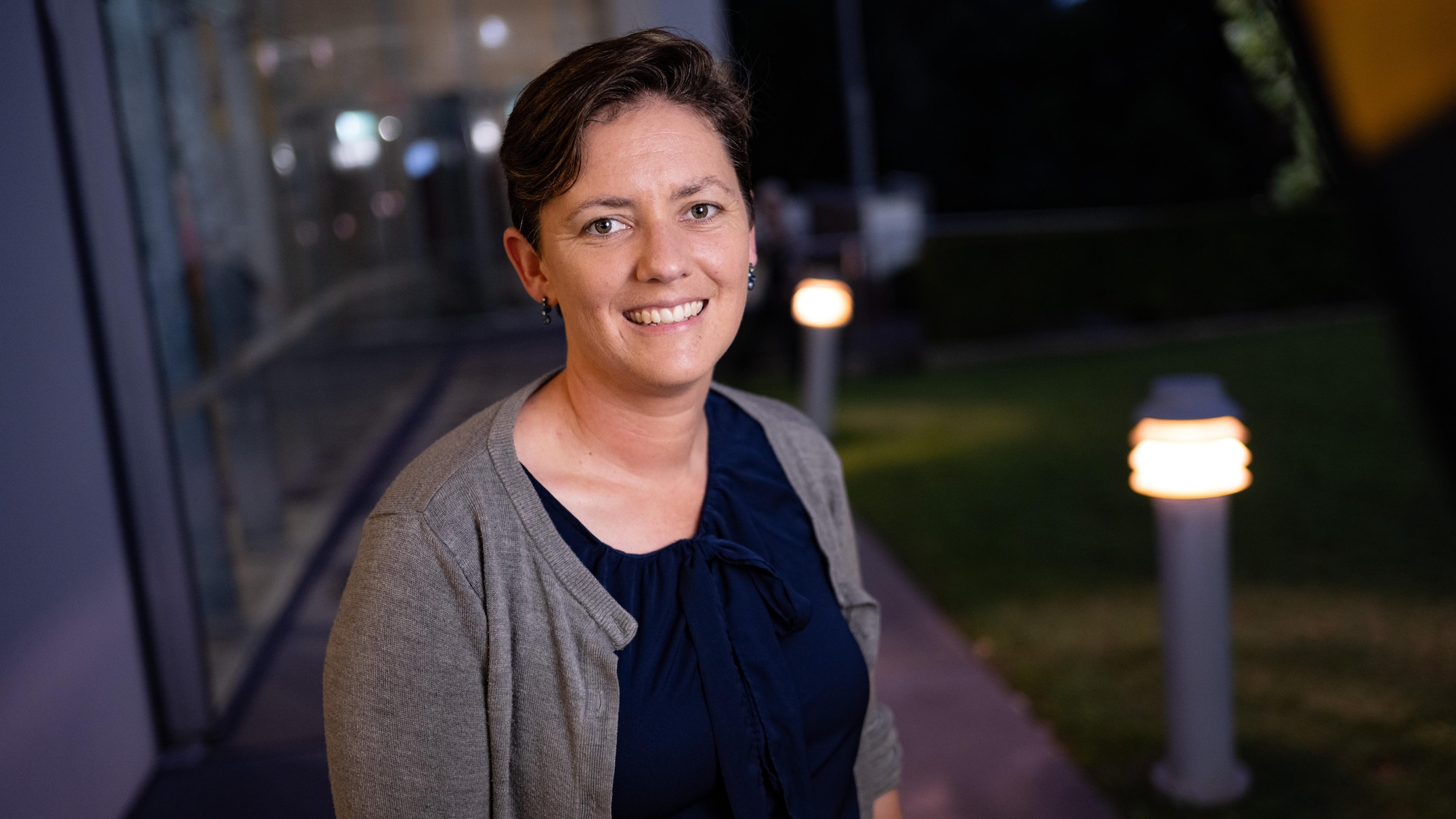
Clare Silcock says cheaper electricity prices aren’t being passed on to the consumer. (ABC Radio Brisbane: Kenji Sato)
The wholesale price of electricity in Australia is roughly three times cheaper than it was two years ago, according to new data from the Australian Energy Regulator, but retailers are still jacking up their prices.
The regulator’s Wholesale Markets Quarterly Report for the first quarter of 2024 shows that wholesale energy prices have fallen about two thirds from recent highs in 2022.
However, Queensland Conservation Council energy strategist Claire Silcock said those savings were not being reflected in people’s power bills.
“The retail price is going up in Queensland next year because there’s still a lot of risk for retailers that there will be periods of extreme high prices,” Ms Silcock said.
“They’re managing that risk and not passing those wholesale power price reductions on to consumers.”
The report by the council found that in Queensland, rooftop solar and large-scale renewable projects brought down average wholesale power prices by $117 per megawatt hour in 2023.
Ms Silcock said this would have slashed average household power bills in Queensland by $400 in 2023, had those savings been fully passed down by retailers.
However, she said there were several reasons why those savings were not passed down to consumers.
One was due to the extremely high price volatility in the market, she said, due in part to aging, unreliable coal-fired power stations and inflated global coal and gas prices.
Ms Silcock said retailers had to absorb the risk of “high price events”, such as repeated breakdowns at the Callide C coal plant near Biloela, which caused prices to skyrocket.
In 2022, the average wholesale power price in Queensland was $90 per megawatt hour, however at 6:30pm on March 16 it shot up to $10,994.
Ms Silock this high volatility could be offset by having more diversity in the energy market through wind and solar.
‘Multiple factors’ impact prices
An Australian Energy Regulator spokesperson said extreme weather, increased network costs and power system events also impacted power prices.
The regulator sets the Default Market Offer (DMO), which is the maximum price retailers can charge customers on default contracts.
The DMO increased over 30 per cent between 2021/22 and 2023/24 for residential customers without controlled load.
The spokesperson said when calculating the DMO, 40 per cent was attributable to network costs and about 30 to 40 per cent was due to wholesale prices.
“Multiple factors including weather and power system events can impact on the spot market and both increase wholesale power prices and impact on retailers’ expectations for the futures contracts they enter into,” the spokesperson said.
“In setting the DMO, which is the cap for standing offer prices, the AER takes into account wholesale costs, network costs, the cost for retailers to participate in government environmental schemes and retail costs for the upcoming financial year.”
They noted between January and March 2024 Australia experienced 26 high price events, more than double the number experienced in the first quarter of 2023.
Australia’s untapped energy potential
As the Queensland Conservation Council puts forward greater investment in wind and solar as a way to offset the volatility of Australia’s energy markets, research from the University of New South Wales has found there are still 5.7 million households in Australia with no rooftop solar.
The report, which was commissioned by the not-for-profit Solar Citizens, found the untapped solar capacity of Australian rooftops was 45.8 gigawatts or $9.3 billion per year.
The authors calculated the cost of installing solar panels on every residential rooftop would be $9.8 billion per year for five years, paying for itself after 5.3 years.
Solar Citizens campaign director Joel Pringle said while most rooftop solar was on private houses, installation was often inaccessible for renters or apartment dwellers.
The report recommended the federal government cut strata regulations to make it easier to build solar panels on apartments and to incentivise landlords to install solar on their investment properties.
“One in three Australian homes has now gone solar — we need greater government support to ensure the financial and health benefits are extended to all Australian households,” Mr Pringle said.
“Cleaner, cheaper rooftop solar energy is a win for both energy bill relief and reducing climate pollution.”
Coal, gas still ‘critical’
A Queensland Resources Council spokesperson said while renewables had an important role to play, coal and gas were still vital to ensuring a reliable energy market.
“The resource industry is investing heavily in solar generation to reduce emissions and lower energy costs at site,” they said.
“But when it comes to Queensland’s energy mix, it’s not a case of one or the other.
“Homes, businesses and hospitals need safe, reliable and affordable electricity and Queensland coal and gas are both critical contributors to our energy security.”
News Related-
High court unanimously ruled indefinite detention was unlawful while backing preventive regime
-
Cheika set for contract extension as another Wallabies head coaching candidate slips by
-
Analysis-West's de-risking starts to bite China's prospects
-
'Beyond a joke' Labor won't ensure PTSD protections: MP
-
Formula One season driver ratings: Lando Norris shines as Max Verstappen nears perfection
-
Catalina golfer Tony Riches scores Guinness World Record four holes in one on same hole
-
Florida coach Billy Napier fires assistants Sean Spencer, Corey Raymond with expected staff shakeup ahead
-
Rohingyan refugee NZYQ accidentally named in documents published by high court
-
Colorado loses commitments of 2 more high school recruits
-
Queensland Health issues urgent patient safety alert over national bacteria outbreak
-
Townsville Community Pantry 'distressed' by fruit, vegetable waste at Aldi supermarket
-
What Is The Beaver Moon And What Does It Mean For You?
-
Labor senator Pat Dodson to resign from politics due to health issues
-
Hamas releases 11 more hostages, as Israel agrees to extend ceasefire
